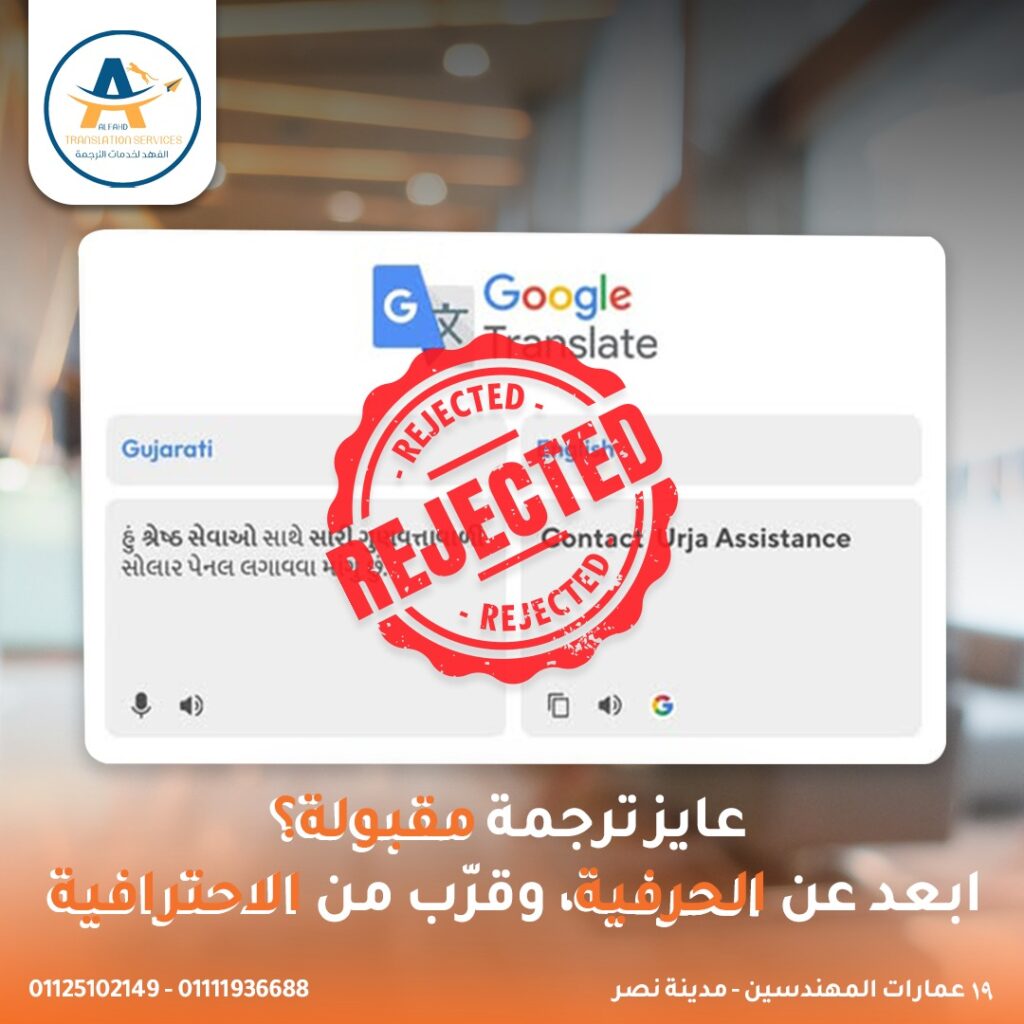Have you ever wondered why some embassies reject documents, even when they are completely accurate? The answer often doesn’t lie in the documents themselves, but in the translation. Certified translation isn’t just about converting one language into another — it’s an official rephrasing that reflects legal, cultural, and administrative understanding. And it could very well be the deciding factor between the approval or rejection of your application.
In today’s fast-paced world of immigration, study, and international work, certified translation has become a central component of global procedures. But now, embassies look beyond the stamp and signature. They scrutinize the fine details: the tone of the document, date formats, even the legal terminology used. A translator who isn’t familiar with the specific embassy’s expectations may produce a linguistically correct translation, but one that’s practically unacceptable.
At Al Fahd Certified Translation Services, we understand that certified translation today goes far beyond linguistic accuracy. We don’t just translate words — we translate intent and context. We continuously monitor embassy requirements to ensure that every document we handle meets the highest standards of acceptance.
Our experts at Al Fahd distinguish between types of translation based on the nature of your file: Is it for immigration, education, or marriage? Each case requires a different presentation and translation approach. We carefully tailor every document to fit the exact standards of the receiving authority — whether it’s the Canadian, German, British embassy, or others.
The modern approach to translation isn’t just about delivering a “correct” document — it’s about preparing a “smart file.” That’s what sets apart agencies that keep up with evolving embassy demands and train their translators to read between the lines, not just translate the surface.
Certified translation is also vastly different from ordinary translation or machine-generated outputs like Google Translate. While machine translation might give you grammatically correct words, it completely lacks legal context, terminology precision, and full meaning — often leading to serious errors or misinterpretation.
Take a simple example: translating the word “Degree” in English. Does it mean “academic degree” or “temperature”? Google Translate may not distinguish the context, but a certified translator knows exactly which meaning is appropriate for the document.
Embassies don’t just want accuracy — they expect professionalism: document formatting, formal phrasing, and an official seal. At Al Fahd, we apply all these standards meticulously, ensuring your papers are accepted from the first submission.
In conclusion, don’t gamble with your future using literal translation or unaccredited offices. Get your documents translated professionally and certified, and begin your international journey with confidence — with Al Fahd Certified Translation Services, where precision isn’t a choice… it’s a promise.

